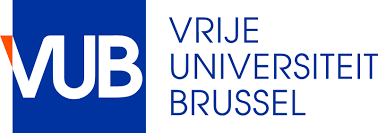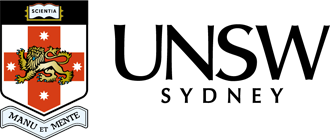FENOMENOLOGI WAKAF BUKU SEBAGAI GERAKAN FILANTROPI DALAM KAJIAN AL-QURAN
(Studi Kasus Wakaf Buku Di Perpustakaan Universitas Muhammadiyah Yogyakarta)
DOI:
https://doi.org/10.31849/pb.v8i2.6601Keywords:
reading interest, book waqf, library innovation, philanthropyAbstract
Libraries as information service providers have tried to give their role in efforts to educate the nation and country life. The book waqf movement is one concrete step to raise the spirit of ta'awun through the library. This phenomenon can be interpreted as a philanthropic movement (generosity. The purpose of this study is to describe the phenomenology of the book waqf as a philanthropic movement in the library of Muhamadiyah University in Yogyakarta studied from the view of the Koran. The author uses a qualitative method approach, as the author conducts observations, interviews, and reviews. According to the academic community in general, the results of this research are that the application of book waqf at the Muhammadiyah University of Yogyakarta (UMY) is an implementation of the charity movement (philanthropy) of science-based on social religion within the University of Muhammadiyah Yogyakarta (UMY). currently, it can be used as an innovative service model that is able to express the piety of the academic community of the Muhammadiyah University of Yogyakarta (UMY) based on the values of the Quran.
References
A. Ridwan, Siregar. (2004). Perpustakaan Energi Pembangunan Bangsa. Universitas Sumatera Utara, Medan.
Ahmad Mujahidin. (2018). Mediacenter.riau.go.id | Perpustakaan Jantung Perguruan Tinggi. Diambil 11 Mei 2020, dari https://mediacenter.riau.go.id/read/43370/perpustakaan-jantung-perguruan-tinggi.html
Arska lSalim. (2008). The Shift in Zakat Practice in Indonesia: From Piety to an Islamic Socio-Political-Economic System. Asian Muslim Action Network and Silkworm Books,Chiang Mai.
Darihan Mubarak. (2019, Juli 13). Filantropi Islam; Kedermawanan yang Bisa Turunkan Kemiskinan. Diambil 13 Mei 2020, dari Republika Online website: https://republika.co.id/share/pukio0282
Darmono. (2001). Manajemen Perpustakaan Sekolah. Grasindo, Jakarta.
Engkos Koswara. (2005). Dinamika Informasi dalam Era Global. Bandung. IPI dan Remadja Rosdakarya, Bandung.
Hilman Latief. (2013a). FILANTROPI DAN PENDIDIKAN ISLAM DI INDONESIA. https://media.neliti.com/media/publications/121848-ID-filantropi-dan-pendidikan-islam-di-indon.pdf, XXVIII(1). Diambil dari https://media.neliti.com/media/publications/121848-ID-filantropi-dan-pendidikan-islam-di-indon.pdf
Hilman Latief. (2013b). Politik Filantropi Islam di Indonesia—Negara, Pasar, dan Masyarakat Sipil. Ombak, Yogyakarta.
Jusman Dalle. (2011). Demokrasi Mencerdaskan Kehidupan Bangsa. Diambil 10 Mei 2020, dari https://news.detik.com/opini/d-1708000/demokrasi-mencerdaskan-kehidupan-bangsa
Kasdi, A. (2016). Filantropi Islam untuk Pemberdayaan Ekonomi Umat (Model Pemberdayaan ZISWAF di BMT Se-Kabupaten Demak). Iqtishadia: Jurnal Kajian Ekonomi dan Bisnis Islam STAIN Kudus, 9(2), 227–245.
(KBBI) Online. (2021). Arti kata filantropi—Kamus Besar Bahasa Indonesia (KBBI) Online. Diambil 25 Desember 2020, dari https://kbbi.web.id/filantropi
KOMINFO. (2017). Kementerian Komunikasi dan Informatika. Diambil 10 Mei 2020, dari https://www.kominfo.go.id/content/detail/10862/teknologi-masyarakat-indonesia-malas-baca-tapi-cerewet-di-medsos/0/sorotan_media
Lukman Solihin, & dkk. (2019). Indeks Aktivitas Literasi Membaca 34 Provinsi. PUSAT PENELITIAN KEBIJAKAN PENDIDIKAN DAN KEBUDAYAAN BADAN PENELITIAN DAN PENGEMBANGAN KEMENTERIAN PENDIDIKAN DAN KEBUDAYAAN.
Mizan. (2013). As-Salam- Al-Qur’an dan Terjemahannya Edisi 1000 Doa. Mizan, Bandung.
M.Quraish Shihab. (418M). Tafsir al-Misbah Pesan,.vulume 13, 418.
Muhammad bin Ismā’īl al-Kahlānī al-Shan’ānī. (2003). Subul al-Salām, Juz III (Terjemahan). Toha Putra, Semarang.
Muhammad Jawad Mughniyah. (1997). Fiqih Lima Mazhab (1 ed.). Basrie Press, Jakarta.
Peraturan Menteri Pendayagunaan Aparatur Negara dan Reformasi Birokrasi Republik Indonesia No 31 Tahun 2014 Tentang Pedoman Pelayanan Publik. (2014). Kementerian Pendayagunaan Aparatur Negara dan Reformasi Birokrasi Republik Indonesia, Jakarta.
Retno herawati. (2017). Perpustakaan yang Inovatif. Diambil 22 Juli 2019, dari https://www.kompasiana.com/rhsnanaretno/5a2b10e5f133445d06615312/perpustakaan-yang-inovatif?page=all
Sayyid Sabiq. (1987). Fiqh Sunnah (1 ed.). Al-ma’arif, Bandung.
Sayyid Sabiq. (1995). Fiqh Al-Sunnah, Juz III (Terjemahan). Dār Al-Fikr, Beirut.
Soekirno. (1996). MEMBERDAYAKAN PERPUSTAKAAN DAN BUDAYA BACA INDONESIA * Sebuah tanggapan terhadap Gerakan Wakaf Buku Nasional. BACA Jurnal Dokumentasi dan Informasi, 21, 3–6.
Suara Muhammadiyah. (2020, Agustus 28). Daftar Perguruan Tinggi Muhammadiyah Dan ’Aisyiyah 2020 | Suara Muhammadiyah. Diambil 19 Maret 2021, dari https://suaramuhammadiyah.id/2020/08/28/daftar-perguruan-tinggi-muhammadiyah-dan-aisyiyah-2020/
Sugiyono. (2011). Metode Penelitian Kuantitatif Kualitatif dan R & D. Alfabeta.
Sulistyo Basuki. (1993). Pengantar Ilmu Perpustakaan. Jakarta: Gramedia Pustaka Utama.
Suwanto, I. (2018, November 15). Kegiatan filantropi tak hanya sekadar urusan materi. Diambil 12 Mei 2020, dari Https://beritagar.id/ website: https://beritagar.id/artikel/gaya-hidup/kegiatan-filantropi-tak-hanya-sekadar-urusan-materi
Top Islamic Universities in the world | 2021 World University Ranking. (2021). Diambil 12 Maret 2021, dari https://www.4icu.org/top-religious-universities/islamic/
Undang-undang-No.-41-2004-Tentang-Wakaf.pdf. (t.t.). Diambil dari https://www.bwi.go.id/wp-content/uploads/2019/09/Undang-undang-No.-41-2004-Tentang-Wakaf.pdf
Widyawati. (2011). Filantropi Islam Dan Kebijakan Negara Pasca-Orde Baru: Studi tentang Undang-undang Zakat dan Undang-undang Wakaf (I). Arsad Press, Bandung.
Downloads
Published
Issue
Section
License
1. Jurnal Pustaka Budaya is an electronic journal that freely available. Papers that submitted to this journal are published under the terms of the Creative Commons License. The terms of the license are:
- Attribution. The licensor permits others to copy, distribute, display, and perform the work. In return, licensees must give the original author credit.
- Noncommercial. Others permits to copy, distribute, display, and perform the work as long as not use the work for commercial purposes — unless they get the licensor's permission.
- No Derivative Works. The licensor permits others to copy, distribute, display and perform only unaltered copies of the work -- not derivative works based on it.
The full terms of the Creative Commons License please see at their Web site.
No claim on copyright is made by the publisher. Persons or publishers wishing to download a paper for whatever use (other than personal study) must contact the author for permission.
2. However, in submitting to Jurnal Pustaka Budaya, authors agree to their paper being published under the terms set out above.
3. It is assumed that, when an author submits a paper to Jurnal Pustaka Budaya, he or she is the legal copyright holder and no other claim to the copyright exists.
























